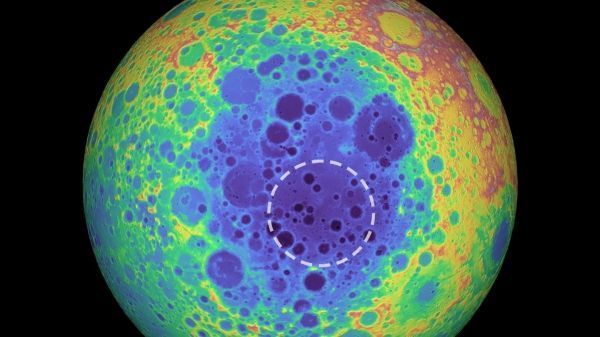A mysterious large mass of material has been discovered beneath the largest crater in our solar system — the Moon’s South Pole-Aitken basin — and may contain metal from the asteroid that crashed into the Moon and formed the crater, according to a Baylor University study.
“Imagine taking a pile of metal five times larger than the Big Island of Hawaii and burying it underground. That’s roughly how much unexpected mass we detected,” said lead author Peter B. James, Ph.D., assistant professor of planetary geophysics in Baylor’s College of Arts & Sciences.
The crater itself is oval-shaped, as wide as 2,000 kilometers — roughly the distance between Waco, Texas, and Washington, D.C. — and several miles deep. Despite its size, it cannot be seen from Earth because it is on the far side of the Moon.
The study — ”Deep Structure of the Lunar South Pole-Aitken Basin” — is published in the journal Geophysical Research Letters.
Read more at Baylor University
Image: This false-color graphic shows the topography of the far side of the Moon. The warmer colors indicate high topography and the bluer colors indicate low topography. The South Pole-Aitken (SPA) basin is shown by the shades of blue. The dashed circle shows the location of the mass anomaly under the basin. (Credit: NASA/Goddard Space Flight Center/University of Arizona)


